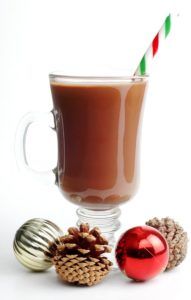 For years, the myth that coffee will sober you up has persisted. This is a dangerous myth because what coffee actually does is add a stimulant to a depressant, creating a false sense of security in our abilities. As caffeine reduces the sedative effects of alcohol, we begin to feel less drunk than we actually are. In essence, coffee wakes us up just enough to be dangerous, possibly ending with a DUI story we probably wish we could forget.
For years, the myth that coffee will sober you up has persisted. This is a dangerous myth because what coffee actually does is add a stimulant to a depressant, creating a false sense of security in our abilities. As caffeine reduces the sedative effects of alcohol, we begin to feel less drunk than we actually are. In essence, coffee wakes us up just enough to be dangerous, possibly ending with a DUI story we probably wish we could forget.
An experiment on mice yielded the revelation that caffeine made rodents more alert but it didn’t reverse the learning problems they were experiencing as a result of the alcohol consumption. These findings pointed out the certain dangers of consuming alcohol and caffeine together, like still risking a DUI and ignition interlock requirement.
Speaking of interlocks, caffeine and coffee won’t prevent them from detecting how much alcohol you have consumed, either.
As the DUI story goes, once the caffeine hits, we perk up (no pun intended), and we might feel like it is okay to keep drinking. We extol the fun in staying up all night to drink, combining all the ways it takes to be a danger on the road: drowsy driving combined with impaired driving and a false sense of being more alert than we are. “I didn’t know,” is no excuse – if you are drinking alcohol, you should not drive, period.
Caffeine will not sober you up. Time, however, will. The only foolproof way to get sober is not to drink at all, but the second-best way is just to wait it out. We metabolize alcohol at a rate of about .02 percent BAC (blood alcohol concentration) every one and a half hours. This explains why we wake up still feeling drunk when we have only slept a short amount of time.
We can change our DUI story by doing simple things like drinking alcohol slowly, eating while drinking, avoiding drinking games, and alternating with water. That’s how you take control and maintain a lower BAC. There are no tricks to make it metabolize faster: you are stuck with whatever you have ingested into your system.

 Fact or Fiction: An Iowa Aggravated OWI Charge Does Not Exist
Fact or Fiction: An Iowa Aggravated OWI Charge Does Not Exist